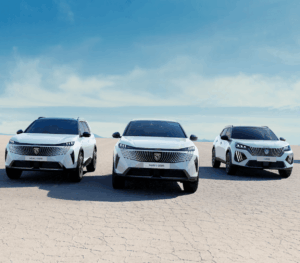Jeremy Hunt’s (pictured) Spring Budget represents a missed opportunity to jumpstart the mass EV transition amid slowing demand for privately bought EVs. After consumer confidence in the EV transition was damaged by last September’s mixed public messaging, and with manufacturers now under an ambitious mandate to sell growing proportions of electric vehicles, the industry was looking to the Chancellor to implement a package of fiscal measures to stimulate demand. SMMT Chief Executive Mike Hawes has insisted.
A fair transition is ultimately what will underpin mass EV adoption, with the current higher cost of making and therefore selling EVs – plus consumers already feeling discouraged by the ongoing shortage of public charging infrastructure – presenting major barriers. SMMT figures for new car and van registrations published this week reflect markets in which overall EV demand is rising, but entirely attributable to the fleet and business sectors thanks to their fiscal incentives. Delivering net zero, however, requires a whole market transition, but with private buyers accounting for fewer than one in five new EVs registered so far in 2024, every lever must be pulled else government and industry targets are put at risk.
Britain is the only major European market with an end-of-sale date and a prescriptive market regulation, but no private EV incentives. While incentives are available for Britons to buy other mission-critical, net zero tech such as heat pumps and solar panels, electric vehicles are afforded no such support. That’s why industry has called for fair and cost-effective measures for decarbonising road transport. The most important measure – and the one to which consumers would most respond – is a temporary halving of VAT on new EVs for three years, saving the average EV buyer around £4,000 off the upfront purchase price, while costing the Treasury less than the early adopters’ Plug-in Car Grant. This measure alone would put more than a quarter of a million additional EVs on the road – all substitutional purchases for fossil fuel alternatives.
(Picture – Dreamstime)






















